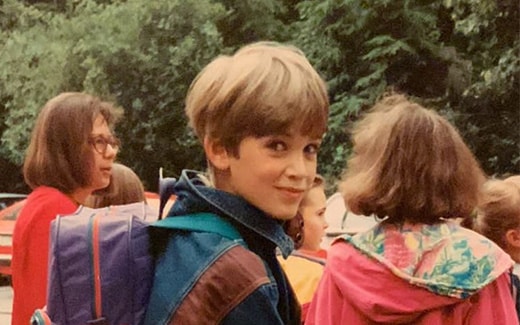What Dyslexia Taught Me
Christchurch IT product innovator Christian Sax describes his lifelong struggles with dyslexia and what he’s learned along the way.
There was little support in the ’90s for students like me. I grew up in a small city in Bavaria. After my first few weeks at school, it became apparent that my reading and writing were poor compared to the rest of the class. A young relief teacher called my parents to tell them that I probably have dyslexia. He suggested a test to get some extra time for my tests. I didn’t want to be different to anyone else, so I stubbornly refused to get tested.

Despite my struggles, I made it into the top 20-25% of students admitted to grammar school, but that was where the real challenge began. My reading and writing skills were still miles below average. Reading out loud was my daily torture and shame for years on end. I developed an approach to just push through any pain or die. I dreaded failing a class because it meant I had to repeat the entire year. Learning English and French for nine and five years respectively, was quite a challenge. There was just no space in my brain for new words and grammar.
After leaving school, I studied information and computer science.My focus was on software ergonomics, making computers work for people by being user friendly. In my early 20s, it was very shameful when I had to read out loud in team meetings, and I still really struggled. I went on to study at the University of Technology in Sydney for one year. It was a massive step because I finished my last coursework and wrote my 120-page thesis in English. At 25, I started practising reading Harry Potter out loud to my partner to get better.

During my studies, I worked out I’m a great visual thinker and problem solver. So, I started at a consultancy that specialised in user experience design (UXD). Thanks to iPhone, it was a new field that showed everyone that computers could be exciting and easy to use. After five years in Sydney, I moved to Christchurch, where I started the first UXD team at Jade Software. My colleague and I built up design teams in New Zealand, Australia and the UK in the following years. UXD was a natural calling because it played to all my strengths and my superpowers.
I let my colleagues know that I’m dyslexic ̶ I wear the fact proudly on my sleeve instead of hiding it. Going public helped to normalise dyslexia for myself and the team, and overcome my shame about being dyslexic. All said, they wouldn’t have noticed if I hadn’t told them.
Dyslexia never goes away. But I’ve learnt to cope, manage, and compensate. I use grammarly.com – a fantastic app that teaches me to write better. I developed iron grit to compensate and learned that I had to work harder than others to get the same outcomes. It’s a good skill in this world, but if you apply it to everything in your life, it can ruin your health. To this day, I still struggle with low self-esteem, insecurities, imposter feelings and depression. It’s impacted my life significantly as well as my relationships. I’m actively working through these and have made significant progress.
I developed iron grit to compensate.
Here’s what I would tell my younger self and others like me:
• You’re OK the way you are. There’s nothing wrong with you! You’re smart.
• Never ever talk yourself down! You’re worthy no matter what your grades or schoolmates say.
• School is a filter system, not an education system. Get help where you can to get through it. You can do what you want afterwards.
• You may have a very tough time at school, but you’re not the only one – others like you have fulfilling lives.
• Never give up! Even if you can’t see light at the end of the tunnel, trust me, it’s there.
• You’re entitled to your pain, frustration and anger, but don’t let it lead you in the wrong direction.
• Celebrate every win, no matter how small.
• Progress over perfection. Perfectionism will not shelter you from your pain and shame. Accept that it’s OK to feel this way.
• You’ll have to work harder than others, but the benefits of dyslexia will help after school.
• Above all, look after and love yourself.
• Life isn’t fair, but it’s still amazing.






